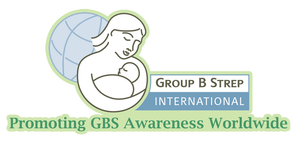Hello. I am 27 years old. I suffered my first miscarriage at 23 weeks and 5 days with my daughter Jasmine in November 2010. I started bleeding heavily, but had no warning signs beforehand. They stated there was a sign of infection but wasn't sure if it was pre or post.
Three months later I found I was pregnant with twins. I was so happy and not knowing the reason I had a cerclage stitch as they suspected a weak cervix. On May 31st I went to the toilet and started bleeding again, the exact same thing as what happened with my daughter. I lost my twin boys at 17 weeks.
The post mortem this time showed a heavy colonization of group B strep in my placenta causing me to miscarry. Although this is rare that it happens it happened to me.I am grateful that I know the cause but I feel that if there was general testing for this infection my 2nd miscarriage could have been avoided. They do not test in the UK and the results for the standard NHS tests can be considered unreliable.
I have started a e-petition on the H.M. government website calling for testing to be throughout a woman's pregnancy as it can can flare up then go. A lot of close observation is required. Here is my link if you agree, please read and sign: epetitions.direct.gov.uk. Thank you.
Group B streptoccoccus should be tested throughout pregnancy not just at 35-37 weeks.
I suffered 2 late miscarriages due to group B streptococcus. Although this is rare it happens. Women are not even told about the risks of this during pregnancy and labour and I would like to know why.
Editor's Note: The cause of miscarriages and stillbirths of babies is currently unreportable in many countries so this may be much more common than is recognized.
— Laura Krivec, UK
Laura shares GBS info on Facebook and has set up an e-petition on the HM government website. She is also making posters to be put up at doctors, surgeries, etc.
Three months later I found I was pregnant with twins. I was so happy and not knowing the reason I had a cerclage stitch as they suspected a weak cervix. On May 31st I went to the toilet and started bleeding again, the exact same thing as what happened with my daughter. I lost my twin boys at 17 weeks.
The post mortem this time showed a heavy colonization of group B strep in my placenta causing me to miscarry. Although this is rare that it happens it happened to me.I am grateful that I know the cause but I feel that if there was general testing for this infection my 2nd miscarriage could have been avoided. They do not test in the UK and the results for the standard NHS tests can be considered unreliable.
I have started a e-petition on the H.M. government website calling for testing to be throughout a woman's pregnancy as it can can flare up then go. A lot of close observation is required. Here is my link if you agree, please read and sign: epetitions.direct.gov.uk. Thank you.
Group B streptoccoccus should be tested throughout pregnancy not just at 35-37 weeks.
I suffered 2 late miscarriages due to group B streptococcus. Although this is rare it happens. Women are not even told about the risks of this during pregnancy and labour and I would like to know why.
Editor's Note: The cause of miscarriages and stillbirths of babies is currently unreportable in many countries so this may be much more common than is recognized.
— Laura Krivec, UK
Laura shares GBS info on Facebook and has set up an e-petition on the HM government website. She is also making posters to be put up at doctors, surgeries, etc.
To learn more about Perinatal & GBS Misconceptions, click HERE.
To learn more about the Signs & Symptoms of Preterm Labor, click HERE.
To learn more about the Signs & Symptoms of GBS Infection, click HERE.
To learn more about Why Membranes Should NOT Be Stripped, click HERE.
To learn more about How to Help Protect Your Baby from Group B Strep (GBS), click HERE.
To learn more about the Signs & Symptoms of Preterm Labor, click HERE.
To learn more about the Signs & Symptoms of GBS Infection, click HERE.
To learn more about Why Membranes Should NOT Be Stripped, click HERE.
To learn more about How to Help Protect Your Baby from Group B Strep (GBS), click HERE.

